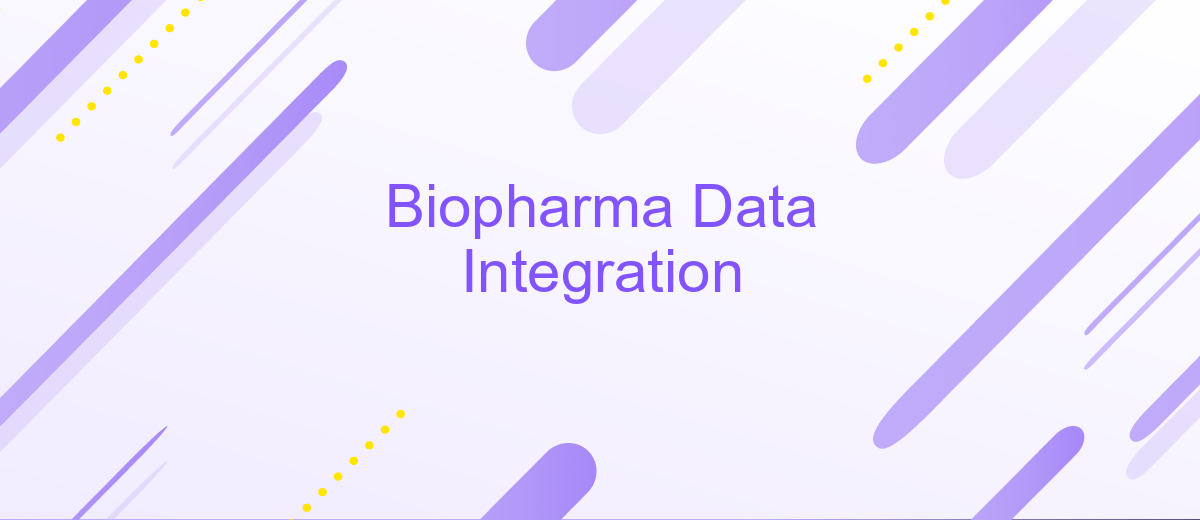Biopharma Data Integration
In the rapidly evolving field of biopharmaceuticals, data integration has become a cornerstone for innovation and efficiency. By seamlessly merging diverse datasets from research, clinical trials, and production, biopharma companies can accelerate drug development, enhance regulatory compliance, and improve patient outcomes. This article delves into the critical role of data integration in transforming biopharma operations and driving the industry forward.
Introduction
In the rapidly evolving field of biopharmaceuticals, data integration has become a crucial component for driving innovation and efficiency. With the vast amount of data generated from various sources, it is essential to have a robust system in place to integrate, manage, and analyze this information effectively.
- Streamlining data from multiple sources
- Enhancing data accuracy and consistency
- Facilitating real-time data access and analysis
- Supporting regulatory compliance and reporting
One of the tools that can significantly aid in this process is ApiX-Drive, a service designed to automate data integration across various platforms. By leveraging ApiX-Drive, biopharma companies can seamlessly connect their data systems, ensuring that critical information is always up-to-date and readily accessible. This not only enhances operational efficiency but also accelerates the drug development process, ultimately leading to better patient outcomes.
Data Integration Technologies

Data integration technologies play a pivotal role in the biopharma industry, enabling seamless consolidation of diverse datasets from various sources. These technologies ensure that data from clinical trials, research studies, and patient records are harmonized and made accessible for comprehensive analysis. Advanced integration platforms facilitate real-time data synchronization, ensuring that critical information is always up-to-date and readily available for decision-making processes.
One such platform is ApiX-Drive, a robust service that simplifies the integration process by connecting various applications and automating data workflows. ApiX-Drive supports a wide range of biopharma-specific applications, ensuring smooth data transfer and reducing the risk of errors. By leveraging such technologies, biopharma companies can enhance their data management capabilities, leading to more efficient research and development cycles and ultimately accelerating the delivery of innovative treatments to the market.
Challenges and Solutions

Integrating biopharma data presents several challenges, primarily due to the complexity and diversity of data sources. Ensuring data accuracy, consistency, and security while maintaining regulatory compliance is a significant hurdle. Additionally, the need for real-time data integration and analysis further complicates the process.
- Data Standardization: Implementing standardized data formats and protocols to ensure consistency across various data sources.
- Regulatory Compliance: Adhering to stringent industry regulations such as GDPR, HIPAA, and others to protect sensitive data.
- Data Security: Employing robust security measures to safeguard data integrity and prevent unauthorized access.
- Real-Time Integration: Utilizing advanced integration platforms like ApiX-Drive to automate data flows and ensure seamless real-time data synchronization.
- Scalability: Ensuring the integration solution can handle increasing data volumes and complexity as the organization grows.
By addressing these challenges with strategic solutions, biopharma companies can achieve efficient and secure data integration. Leveraging tools like ApiX-Drive can streamline the integration process, providing a scalable and compliant framework for managing diverse data sets. This approach not only enhances operational efficiency but also accelerates data-driven decision-making.
Applications and Benefits

Biopharma data integration is revolutionizing the way pharmaceutical companies manage and utilize data. By seamlessly connecting disparate data sources, organizations can enhance their research capabilities, streamline operations, and accelerate drug development processes.
One of the primary benefits of biopharma data integration is the ability to achieve a holistic view of data across various departments. This integration not only improves data accuracy but also facilitates better decision-making by providing comprehensive insights.
- Enhanced data accuracy and consistency
- Improved collaboration across departments
- Accelerated drug development timelines
- Cost reduction through streamlined processes
- Better regulatory compliance
Services like ApiX-Drive play a crucial role in simplifying the integration process. ApiX-Drive enables biopharma companies to connect various data sources without the need for extensive coding, thereby saving time and resources. With such tools, organizations can focus more on innovation and less on the technical complexities of data integration.
- Automate the work of an online store or landing
- Empower through integration
- Don't spend money on programmers and integrators
- Save time by automating routine tasks
Future Trends
As biopharmaceutical companies continue to evolve, the integration of diverse data sources will become increasingly sophisticated. Advanced analytics and machine learning algorithms will play a pivotal role in extracting actionable insights from complex datasets. This will enable more precise and personalized treatments, improving patient outcomes and accelerating drug development timelines. Additionally, the adoption of cloud-based platforms will facilitate seamless data sharing and collaboration across global research teams, breaking down traditional silos and fostering innovation.
Looking forward, automation tools like ApiX-Drive will gain prominence in streamlining data integration processes. These platforms will allow biopharma companies to effortlessly connect various data sources, ensuring real-time data flow and reducing the risk of human error. By leveraging such services, organizations can focus more on strategic decision-making and less on technical challenges, ultimately driving more efficient and effective research and development efforts. The future of biopharma data integration is poised to be more interconnected, intelligent, and automated, paving the way for groundbreaking advancements in the industry.
FAQ
What is Biopharma Data Integration?
Why is data integration important in biopharma?
What are the common challenges in biopharma data integration?
How can automation help in biopharma data integration?
What should be considered when choosing a data integration tool for biopharma?
Time is the most valuable resource in today's business realities. By eliminating the routine from work processes, you will get more opportunities to implement the most daring plans and ideas. Choose – you can continue to waste time, money and nerves on inefficient solutions, or you can use ApiX-Drive, automating work processes and achieving results with minimal investment of money, effort and human resources.


